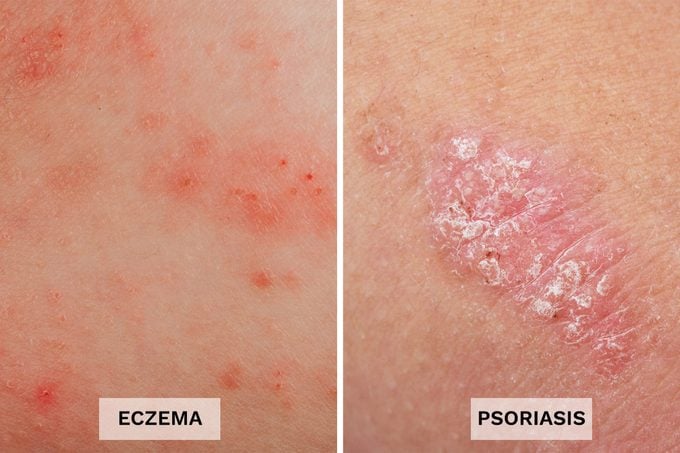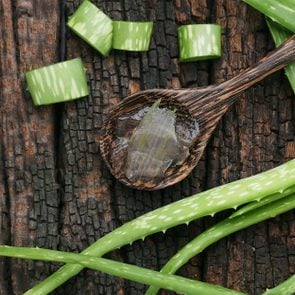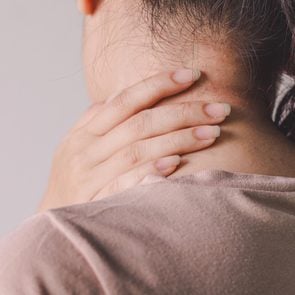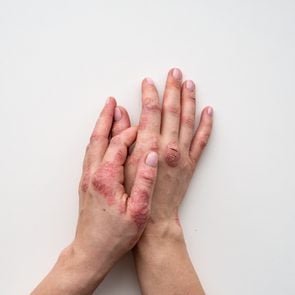Eczema vs. Psoriasis: 13 Differences Doctors Need You to Know
Updated: Jun. 21, 2021
Eczema and psoriasis have a lot in common, but there are key differences in their causes, triggers, symptoms, and treatments. Knowing if your symptoms are caused by psoriasis vs. eczema is the first step toward getting relief.
Inflammation overload
Your body is covered in itchy, red patches. Clearly something’s up. The trick: figuring out if they’re caused by eczema or psoriasis.
It’s not always easy to tell the difference between the two common inflammatory skin conditions, but it is important, says Emma Guttman-Yassky, MD, PhD, a professor and system chair of dermatology and immunology at the Icahn School of Medicine in New York City.
“The immune system axis driving them and the treatments are very different,” she says.
Although both eczema and psoriasis are inflammatory conditions related to irregularities in the immune system, they have different causes. Here is a closer look at each, from risk factors and symptoms to prevention and treatment.
What causes eczema and psoriasis?
Researchers don’t fully understand exactly what causes eczema, but they believe genes and exposure to triggers play a role in causing flares, according to the National Eczema Association.
Some people with eczema may have a mutated copy of the gene that produces filaggrin, a protein that helps the body maintain a healthy protective barrier on its outermost layer. That’s what researchers concluded in a 2017 Journal of Allergy and Clinical Immunology study.
When you don’t produce enough filaggrin, your skin’s protective barrier may not be up to the task. As a result, moisture can escape, and unwanted microbes can invade.
There’s a long list of potential eczema triggers, including soap, laundry detergent, shampoo, bubble bath, body wash, fragrances, metals, cigarette smoke, and household cleansers.
If you have eczema, your immune system is overactive. When you are exposed to a trigger, your body responds with inflammation that causes red, itchy skin.
Psoriasis is also caused by an overactive immune system. In this case, it revs up the production of skin cells.
Instead of shedding, these skin cells build up, causing raised, reddish plaques. They can occur anywhere on the body, but psoriasis most commonly develops on your lower back, elbows, knees, legs, soles of the feet or palms, and/or scalp.

Who is at risk for eczema and psoriasis?
More than 31 million people in the United States have some form of eczema, and their symptoms can range from mild to severe. There are seven types of eczema, including atopic dermatitis, contact dermatitis, dyshidrotic eczema, nummular eczema, seborrheic dermatitis, and stasis dermatitis.
By contrast, about 8 million Americans have psoriasis, according to the National Psoriasis Foundation. There are also many types of psoriasis, such as genital psoriasis, guttate psoriasis, and palmoplantar psoriasis.
The age when you first develop symptoms is another clue that can help your doctor determine if your red, itchy skin is caused by eczema or psoriasis, says Peter A. Lio, MD, a clinical assistant professor of dermatology and pediatrics at Northwestern University Feinberg School of Medicine in Chicago.
“More than 80 percent of eczema cases present by age five, while psoriasis can affect all ages but tends to develop in adulthood,” he says.
Symptoms of eczema and psoriasis
If you have eczema, you know that itch is one of its most vexing symptoms. Sometimes it is unbearable, and close to 63 percent of people with eczema say they itch at least 12 hours a day.
All of this itching can keep you awake at night too. About 60 percent of children with eczema have trouble sleeping because of the intense itch, and this may also keep their parents awake, the National Eczema Association points out.
“Eczema is, by definition, itchy, while psoriasis can be itchy but is often not very itchy,” Dr. Lio says.
Other eczema symptoms may include dry, sensitive, and inflamed skin that may ooze or crust. Eczema can also be painful. More than 60 percent of adults with the condition say it hurts.
Psoriasis symptoms may include plaques with silvery scaling, itching, burning, and pain. It sometimes involves the nails and joints (causing pain), while eczema usually does not.
Risks of infection
The itching of eczema can drive you to distraction, but giving in will only make matters worse. Scratching (more on that later) increases your risk of developing any infection, Dr. Lio says.
And therein lies another difference between psoriasis and eczema: psoriasis is very unlikely to become infected, he says, while eczema is frequently infected or at least colonized by Staphylococcus aureus bacteria.
Plaques and patches
Both psoriasis and eczema are characterized by patches of irritated skin, but there are some subtle differences to the trained eye.
“Psoriasis plaques are very well demarcated,” says Gary Goldenberg, MD, an assistant clinical professor of dermatology at Icahn School of Medicine. “They are neat and often have silvery scales, whereas eczema is haphazardly arranged. You may have normal skin overlapping with diseased skin in eczema.”
Where do they appear?
Psoriasis and eczema appear on different parts of the body, which can clue you in to the cause of your skin flare-up.
“Eczema tends to appear in the folds, while psoriasis tends to prefer the extensor areas, like elbows and knees,” Dr. Lio says.
Psoriasis might also affect your nails, but eczema usually won’t.
Risks of other illnesses
Both eczema and psoriasis come with increased risks for other, related diseases. But in most cases, the conditions they’re associated with differ.
So if you’re dealing with other diseases, they may offer a clue as to whether you also have eczema or psoriasis.
Eczema and other conditions
Eczema is more of an allergic disease than psoriasis, and it often occurs with allergies and asthma, Dr. Goldenberg says.
In fact, one in three children with atopic dermatitis will develop asthma or allergic rhinitis, the National Eczema Association notes. What’s more, young children with atopic dermatitis are six times more likely to develop a food allergy than are children without this skin condition.
And more than 20 percent of adults with eczema also have asthma, along with a higher risk for allergic rhinitis and food allergies.
Eczema can affect your mental health and self-confidence too. More than 30 percent of adults with atopic dermatitis say they have been diagnosed with depression and/or anxiety, according to a survey by the National Eczema Association.
Psoriasis and other conditions
Psoriasis may be associated with the joint pain and inflammation of psoriatic arthritis and can increase your risk for heart disease, diabetes, and other conditions driven by inflammation.
It too can take a toll on your confidence, especially when it goes untreated or undertreated and appears in visible areas like your face or hands, Dr. Goldenberg notes.
Genital psoriasis, in particular, can have a negative effect on a person’s mental health and romantic relationships.
Eczema and psoriasis triggers
Avoiding triggers, when possible, helps minimize flares of both conditions, Dr. Goldenberg says. The specific triggers, however, may differ.
Eczema is often set off by something that comes into contact with your skin, such as harsh soap or scented laundry detergent.
Psoriasis triggers may include stress, injury to the skin, illness, and sometimes the weather.
Prevention strategies
While treatment for eczema and psoriasis often differs, some prevention strategies and therapies overlap. That includes regular use of a gentle moisturizer.
The best way to treat eczema is to prevent flares. This can be done by using a gentle moisturizer every day. Apply it to damp skin after getting out of the shower or bath, Dr. Lio says.
Regular use of a moisturizer also has a role in keeping psoriasis flares at bay and managing your symptoms.
And because scented detergents can trigger an eczema flare, make sure to choose only unscented products that are specially formulated for sensitive skin. Look for the National Eczema Association’s Seal of Acceptance.
If you have psoriasis that’s triggered by stress, find a healthy way to cope with stress, such as meditation, yoga, or taking walks.
Dangers of scratching
Whatever you do—and no matter how tempted you are—don’t scratch your eczema, Dr. Lio says. This will exacerbate the itch-scratch cycle and may increase your risk of developing an infection.
There are other ways to control itch, including soaking in a bath with oatmeal, taking an over-the-counter antihistamine, or using over-the-counter or prescription steroids.
Similarly, the worst thing you can do for psoriasis is pick at the flakes, Dr. Goldenberg says. It’s counterproductive and will only create more flakes.
Available medications
The main treatment for psoriasis and eczema is topical steroids. These creams or ointments work by reducing inflammation.
Steroids can cause some side effects, especially if they are used for long periods of time. For instance, they might thin the skin, which can be especially detrimental on areas that already have thin skin.
Additional eczema medications
Another class of eczema drugs, known as calcineurin inhibitors, includes tacrolimus (Protopic) and pimecrolimus (Elidel). These steroid-free medications can reduce eczema symptoms by controlling certain cells in the immune system.
Yet another topical treatment for eczema targets phosphodiesterase 4 (PDE4), an enzyme that kick-starts the production of different inflammatory proteins in the immune system. Crisaborole (Eucrisa) is the only topical PDE4 inhibitor for atopic dermatitis approved by the U.S. Food and Drug Administration (FDA).
When topical creams and ointments don’t work, doctors may turn to UV light therapy.
Additional psoriasis medications
Aside from steroid creams, psoriasis is typically treated with calcipotriene, a form of vitamin D that slows down skin cell growth.
Some topicals that treat eczema may be used “off label” for psoriasis, including topical calcineurin inhibitors.
UV light therapy is a staple in psoriasis care.
Choices of systemic therapies
While topical creams and ointments are the go-to treatments for both eczema and psoriasis, they may not do the trick. Or they might need an extra boost.
That’s where systemic drugs come in. They’re available for the treatment of both skin conditions.
Systemic psoriasis drugs
If psoriasis affects a large surface area of your skin or diminishes your quality of life, your doctor may also recommend a systemic drug such as a biologic, Dr. Goldenberg says.
Biologics can be given as IV infusions in a doctor’s office or self-injections at home. They are genetically engineered proteins that target very specific parts of the immune system that drive inflammation.
Biologics can be prescribed on their own or in combination with other treatments. Unlike older systemic psoriasis medications, which suppress the whole immune system, biologics target specific parts. As a result, may have fewer side effects.
There are currently 12 biologics available to treat psoriasis.
Another systemic option is apremilast (Otezla). It is not a biologic drug and is taken as a pill twice a day. Otezla works by blocking PDE4.
“There is not a one-size-fits-all treatment for psoriasis,” says Jennifer Soung, MD, director of clinical research at Southern California Dermatology in Santa Ana. “When choosing a therapy, we want to understand what a patient’s priorities are, how severe their disease is, and what comorbid conditions come along with it.”
Systemic eczema drugs
For eczema, there’s just one biologic out there, and it has been a game-changer, says Dr. Guttman-Yassky, who’s also the director for the Center of Excellence in Eczema at Mount Sinai Hospital in New York City.
Given by injection, dupilumab (Dupixent) is approved to treat moderate to severe eczema that isn’t adequately controlled by topical treatments. It’s also a good option for people who can’t use topical treatments.
It’s a monoclonal IgG4 antibody, working to block the IL-4 receptor site to cool inflammation. The medication also treats asthma.
Healthy lifestyle changes
Lifestyle changes are another way to help minimize flares of psoriasis and/or eczema, Dr. Goldenberg says.
“Diet, exercise, and weight loss are important, especially for psoriasis patients, who are more likely to be overweight or obese,” he says.
Dr. Goldenberg recommends an anti-inflammatory diet for people with either condition. “This means no white flour, white sugar, or dairy; eating more vegetables, whole grains, and seeds; and drinking enough water,” he says.
And be sure to avoid these seven foods that can make psoriasis worse.
If you’re taking your medications and doing all you can to keep eczema or psoriasis flares at bay but your symptoms are still too much to bear, see a dermatologist to find out what else you could try.




















